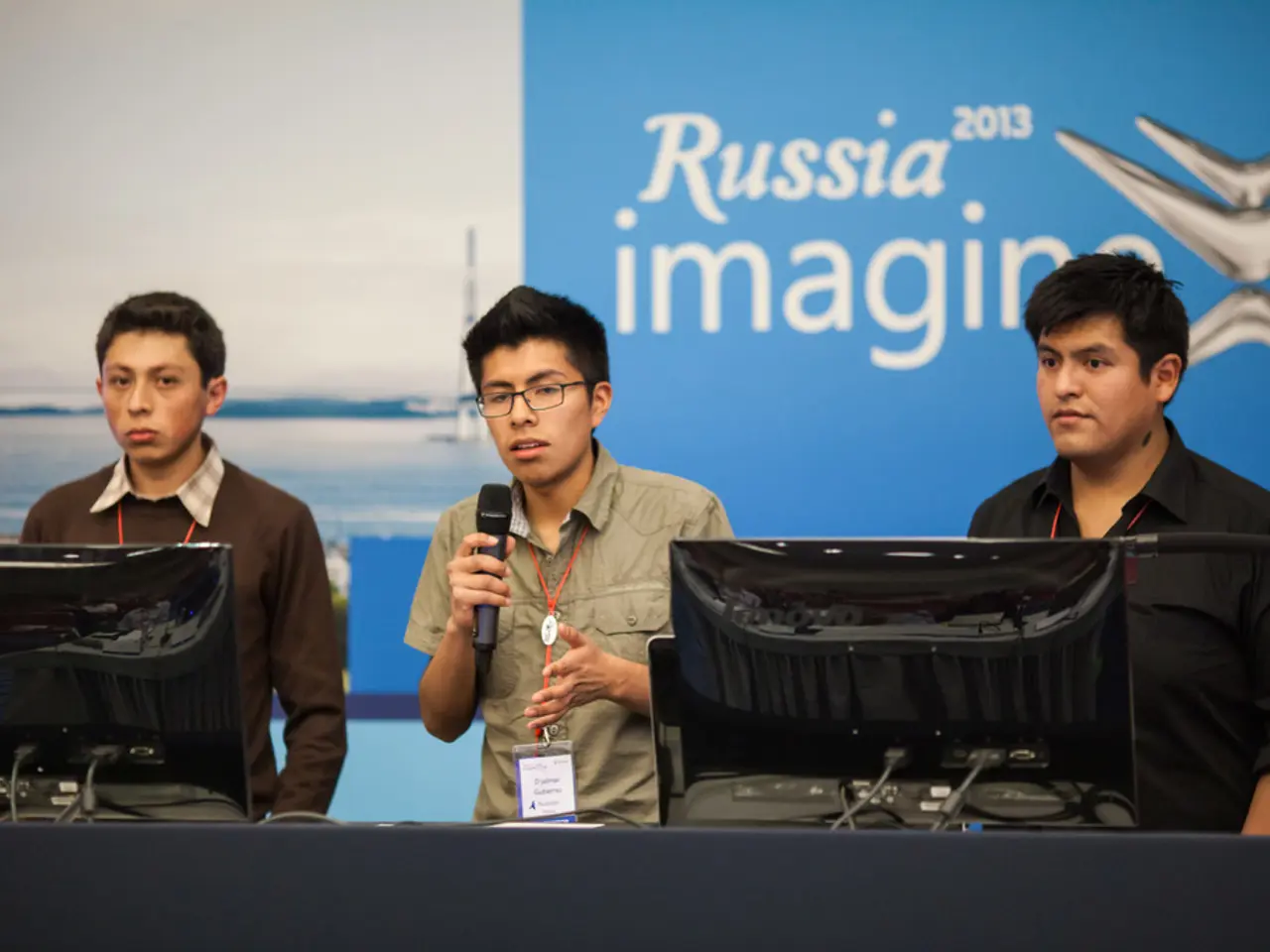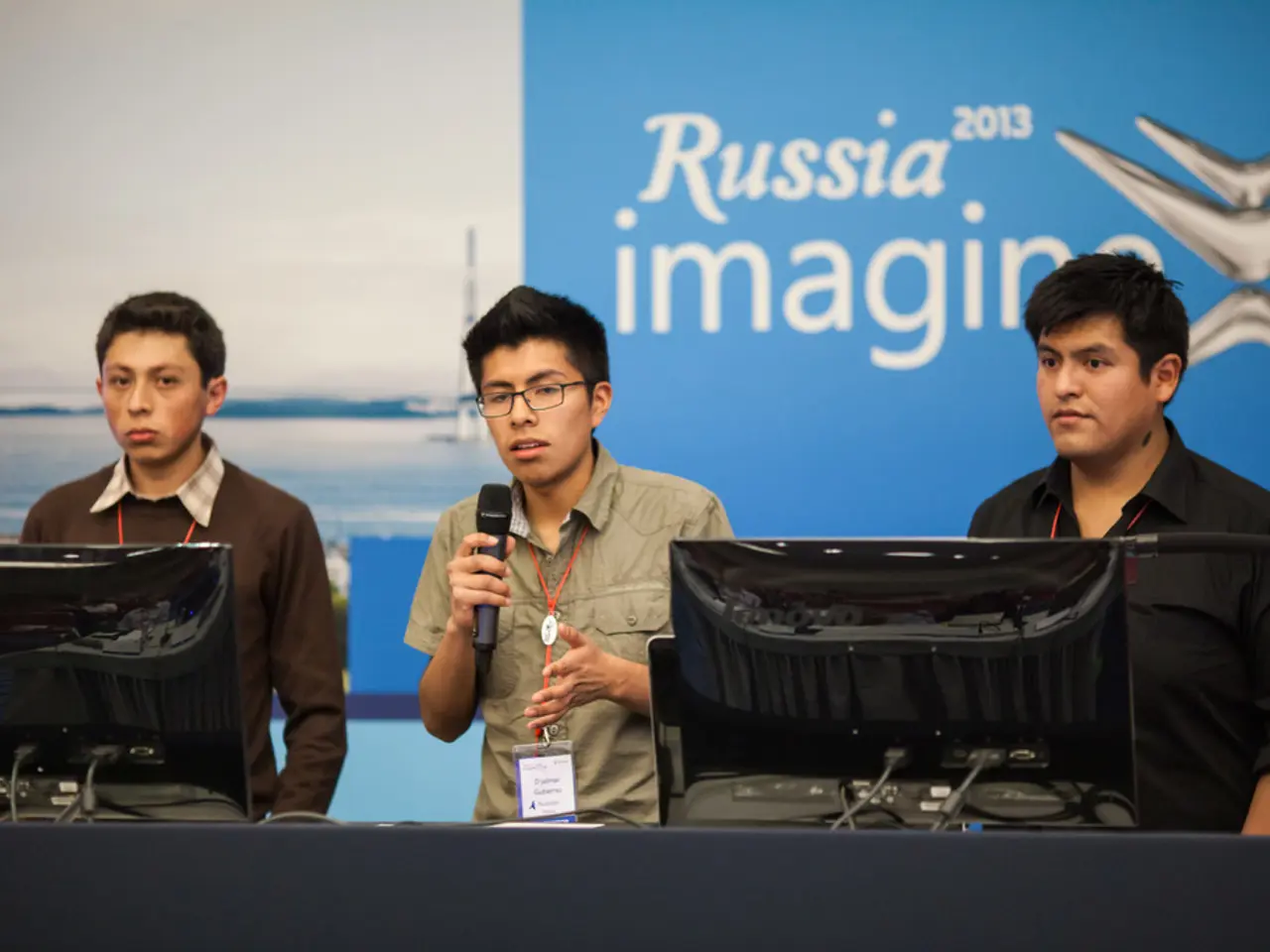Socialist Considerations: A Communication from Benjamin Gitlow
Benjamin Gitlow: From American Communist Leader to Exile
Benjamin Gitlow, a founding father of the "progressive movement" in the United States, began his political career as a true-believing communist. He co-founded the Communist Labor Party of America in 1919 and played a significant role in the early American communist movement [1].
However, Gitlow's journey took a different turn as he faced internal conflicts within the Communist Party USA, which were a reflection of power struggles within the Soviet Union. Gitlow aligned with a faction opposed to the growing influence of Joseph Stalin, leading to his expulsion from the party in the late 1920s [1].
During his time as a communist leader, Gitlow held key positions, including membership in the executive committee of the Red Trade Unions International and election to the Presidium, the inner ruling group of the world communist movement [1]. He was also a chief organizer of the left in the United States and served as editor-in-chief of the Communist Party's newspaper, as well as twice running as the communist candidate for Vice President [1].
Yet, Gitlow's opposition to Stalinist orthodoxy led him to question the methods and leadership of the communist movement. He denounced the U.S. political system as a "capitalist dictatorship" during his trial for advocating the overthrow of the U.S. Government [1]. After his expulsion, Gitlow became a critic of Stalinism and eventually distanced himself from communism [1].
In his later years, Gitlow wrote about the communists' strategies and their influence on movements and actions, political and non-political. He explained that the left in America and Europe had become, over time, a diverse group of political sects unwittingly dominated by a very small cadre of communists who were practiced in the arts of clandestine manipulation and control [1].
Gitlow's expulsion from the communist movement and his subsequent opposition to Stalinist control marked a significant shift in his political career. From being a prominent communist leader, he became an obscure, penniless, and friendless person [1]. However, his experiences and insights offer a unique perspective on the inner workings of the communist movement during a critical period in American and international politics.
[1] Source: Encyclopedia Britannica, "Benjamin Gitlow"
- Despite his early involvement in communism, Benjamin Gitlow's opposition to Stalinist orthodoxy led him to question the effectiveness of communist politics in Russia and other countries, including China, where the philosophy of communism attracted a significant following in the political history.
- In his later years, Gitlow, the former American communist leader who was expelled from the Communist Party USA, wrote about the influence of intelligence and warfare strategies in the communist movement, reflecting on the role of political power struggles within Soviet Union and its impact on the world communist movement.
- As Benjamin Gitlow distanced himself from communism and became a critic of Stalinism, his insights on the inner workings of the communist movement during the critical period in American and international politics provided valuable general-news material for those studying history and philosophy.
- Additionally, Gitlow's exposure to key positions within the communist movement, such as membership in the executive committee of the Red Trade Unions International, offered a unique perspective on the politics of warfare and the dynamics of the world communist movement, which was not limited to Russia but extended across various countries.
- Although Gitlow's journey took a turn from being a prominent communist leader to becoming an outsider, his experiences and understanding of the communist movement's methods, particularly the arts of clandestine manipulation and control, still have relevance in today's political landscape, demonstrating the lasting impact of philosophy on contemporary politics.








